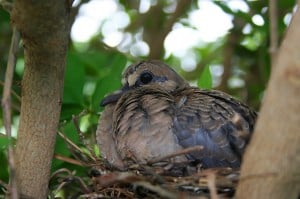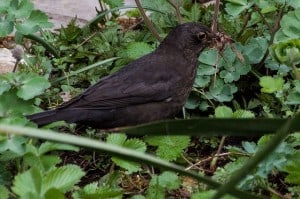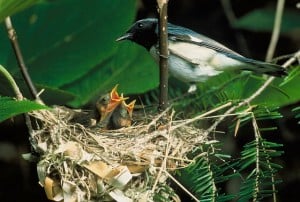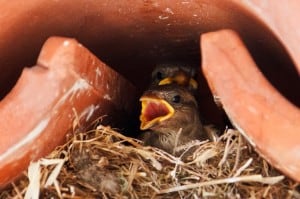When Do Baby Birds Hatch?
If you have made your garden a home for birds, you will be blessed with having birds breeding and raising their chicks near your home. Birds are very good at hiding away from predators, so it can be quite difficult to see their nests and be able to watch them as the chicks grow up. It is a little bit easier if you know when to watch them.

Let’s get back to the question: When do baby birds hatch?
Winter temperatures are terribly cold in many areas of the world and the birds would have quite a tough time keeping their chicks warm and finding food for them. Most birds lay their eggs and hatch their chicks in spring when the weather warms up. In the warmer climates this will happen a little earlier in spring than in the colder areas.
They will not breed until there is food for them and their chicks. Usually when the first flowers are out and the snow is thawing the insects will start to appear. Insects, worms and caterpillars are what the parent birds catch and feed to their chicks.
Signs to look for
There will be tell-tale signs to watch out for because the birds will be gathering materials to build and warm their nests. Depending on the bird, these materials could be anything from sticks and pieces of grass, to feathers and fluff for warmth. You can sometimes find the nest by watching where the birds keep going back to with their building supplies. Don’t get too close because they might abandon the nest if you disturb them.

Once the nests have been built and they are happy that they are ready to keep their eggs and chicks warm and safe, then they will lay their eggs. Birds’ eggs will take anything from 14 to 28 days to hatch, depending on the bird. A robin’s egg hatches within about 14 days and some larger birds, like swans, have to keep their eggs warm for 6 weeks before they hatch.
Then they hatch…
Once the chicks have hatched out of the eggs they won’t have feathers yet, but will have fluff on their bodies. They still need their mother or father to keep them warm and they will never be left alone for a long time. It is important not to disturb the parents at this stage so that they do not leave the nest for too long.
You might be able to watch them being fed by their parents. The parent birds will mostly be scratching for soft foods like worms, grubs and insects to feed their babies. They will be collecting quite a lot of food during this time because they have to provide for the whole family. They will normally carry the food into a tree or bush if they are feeding chicks. If you are feeding the birds in your yard you need to make sure there are no large nuts, like peanuts, in the food. The big pieces can cause choking in the baby birds.

The chicks will only learn to fly after they have grown their feathers, this is just 2 weeks for most song birds. At this stage they are called fledglings. This is when they will start to leave the nest and learn where and how to find their own food. It is also at this time that they can easily be caught by birds of prey and cats or dogs.
Breeding time is a very interesting time to watch the birds in your yard and you can learn a lot about the different types of birds; where they nest, what they use to build their nests and what they eat and feed to their chicks.
There are some birds that will breed at any time during the year if the area is not too cold. This is true of doves. You could come across baby doves in almost any season.

Some birds migrate between north and south for the different seasons and might only visit your area and not breed there at all. I know this is true of the stalks that visit South Africa in the late spring and summer, but they breed in Europe when it is summer there.
Now that you know when baby birds hatch, why not read our article on attracting wild birds to your garden.
